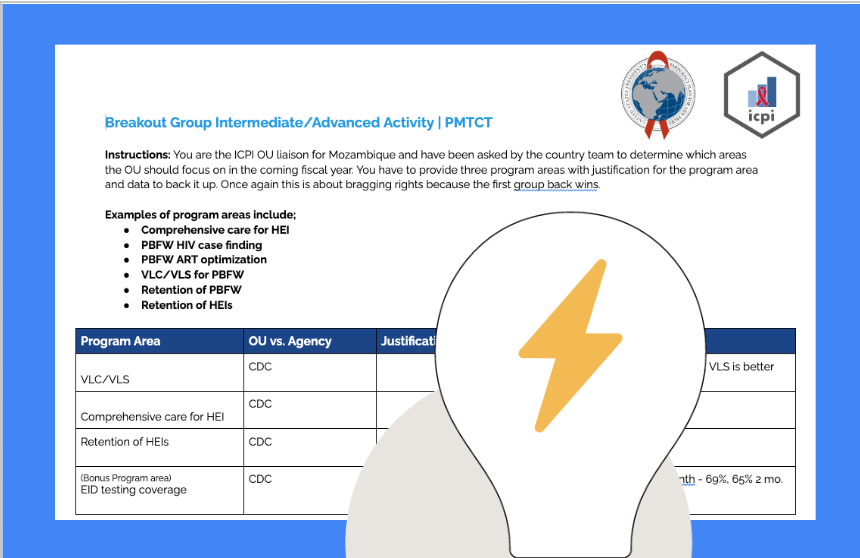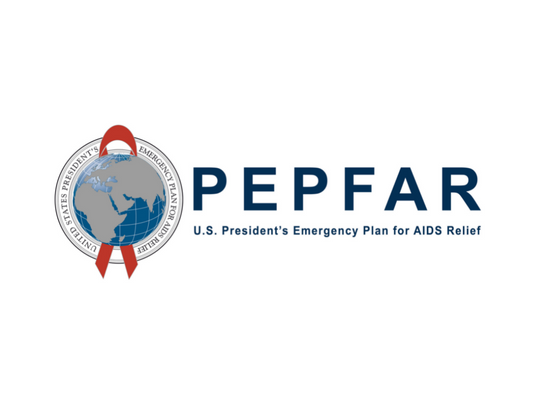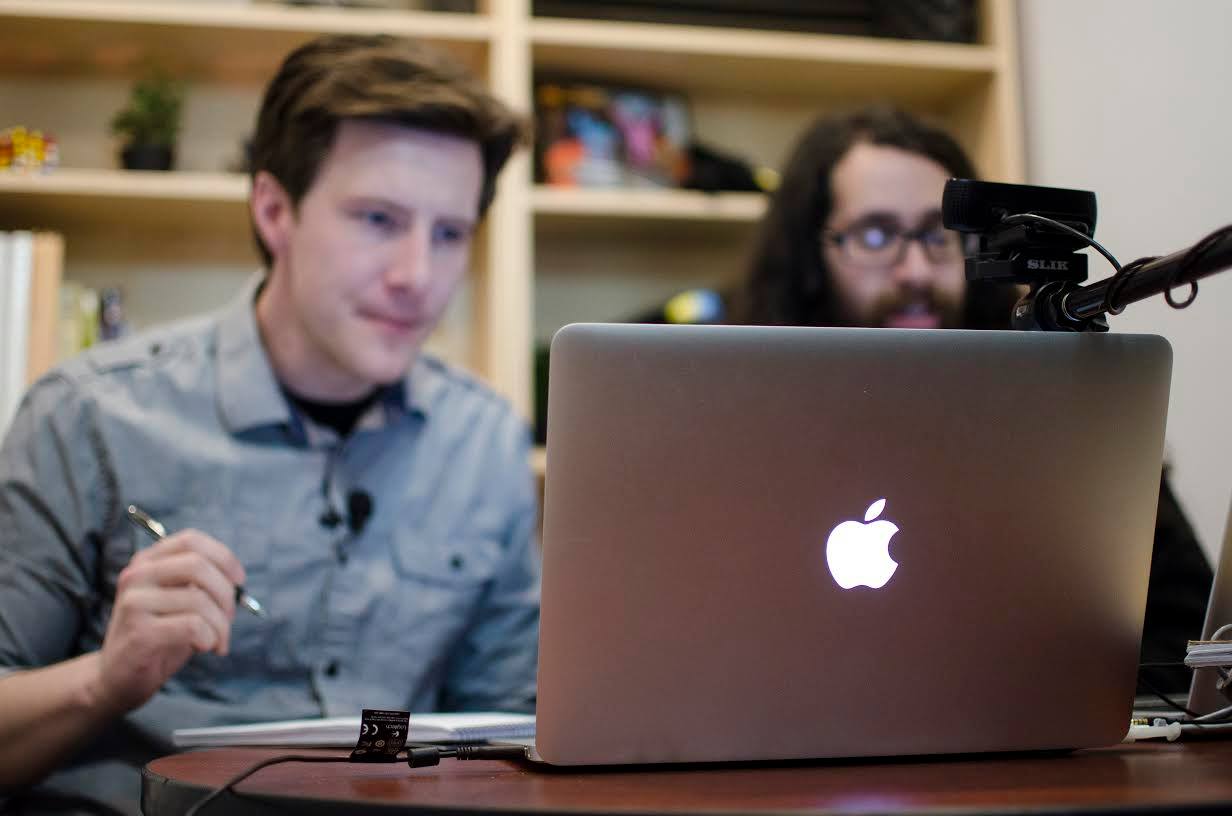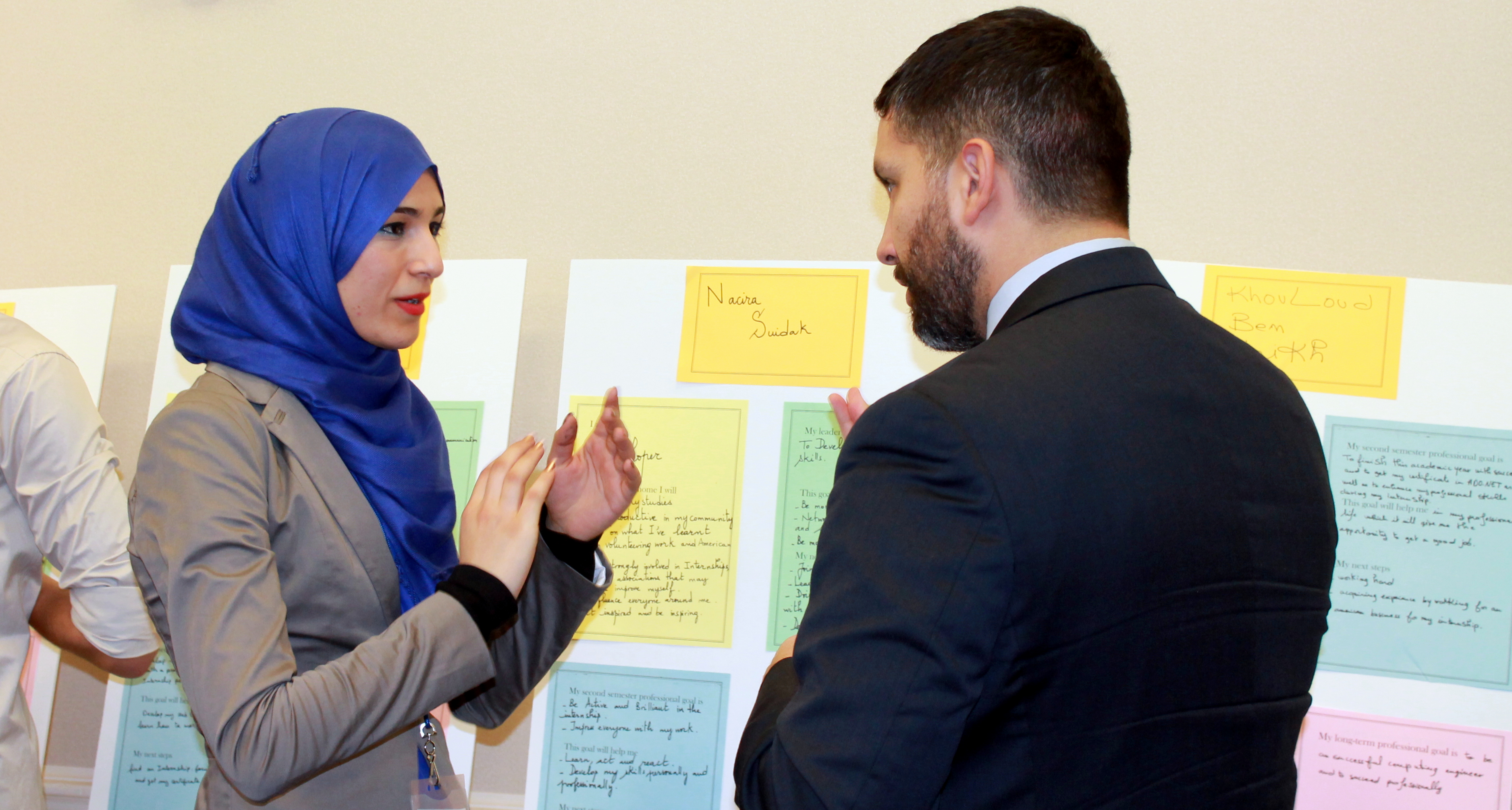Over the past twenty years, it’s estimated that the U.S. President’s Emergency Plan for AIDS Relief (PEPFAR) has saved twenty-five million lives in more than fifty countries through a wide variety of efforts to combat the HIV/AIDS epidemic. This vital, complex work requires an immense amount of data tracking and analysis, much of which is made possible by the Interagency Collaborative for Program Improvement, or ICPI. For the last three years, TechChange has partnered with ICPI and DigitalSquare to support the dedicated professionals responsible for the data crucial to the realization of PEPFAR’s mission.
TechChange uses our community building and knowledge sharing expertise to provide PEPFAR’s data synergy hub at ICPI with four main ways of connecting and collaborating.
Learning Collaboratives that Bring Agencies Together
Learning Collaboratives are 2-hour monthly virtual forums that bring together field and headquarters staff from USAID, US Department of State, Peace Corps, US Health Resources and Services Administration, and the Centers for Disease Control and Prevention. These forums serve as a key touch point for sharing, learning, and identifying areas for technical assistance and tailored follow up. TechChange uses digital whiteboard tools such as Miro to facilitate interactive activities and knowledge sharing, but it’s the expertise within the community that takes center stage in these sessions. For example, in January 2023, an interagency team from Côte d’Ivoire shared how they were doing data quality assessments, including best practices for using a newly updated tool. This allowed the ICPI team to see what the new assessment looked like in practice, and highlighted valuable local expertise in implementation.
Onboarding Trainings to Bring New Hires Up to Speed
Detailed onboarding to the tools and policies of PEPFAR is critical for data professionals joining the relevant agencies. TechChange provides twice-annual virtual training to support the capacity building of new PEPFAR staff. These multi-day sessions involve roughly a dozen configured breakout rooms, 30+ facilitators, 16-20 learning presentations, 5 government agencies, multiple Zoom links, and nearly 100 participants from PEPFAR-supported countries around the world. The training prepares new staff from the five related agencies for success in achieving PEPFAR’s important mission. One participant from the May ‘23 training shared that “the interactive exercises were great and helpful in understanding the content, while another termed their session “well-paced, informative, and empowering.”
Strategic Meeting for Goal Setting and Visioning
TechChange also provided technical support for a hybrid event hosted by ICPI where leaders from each of the PEPFAR-involved agencies shared their priorities and concerns for the year. Attendees communicated elements of the learning initiatives that were working well, such as the white-boarding exercises during onboarding, and those that need further support in the future, such as guidance for volunteer facilitators to take on more sessions. This convening allowed for goal setting and visioning for 2024, including planning for future Learning Collaboratives, Onboarding Training and a Strategic Retreat.
Ideation Sessions Refresh and Reorient Work
In a multi-year partnership, it’s easy to continue business as usual. But in the fast moving field of international development and public health, its crucial to continually align stakeholders to ensure that community building and knowledge sharing initiatives– such as those provided by TechChange to ICPI and Digital Square– meet new needs and demands, as well as continuously bring in new formats and engagement strategies to keep things fresh. In 2024, TechChange will host a series of in-person and virtual Ideation Sessions and Strategic Workshops and/or Retreats with key ICPI and other agency stakeholders to plan for the future of these learning and collaboration initiatives, as well as to support their teams to connect with one another.




